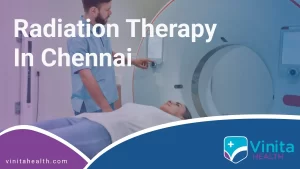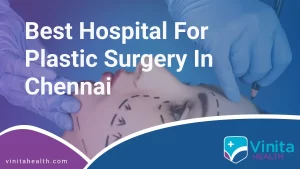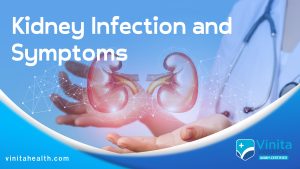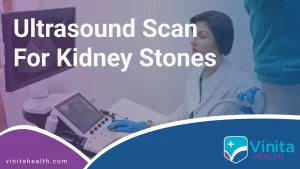In today’s world, many patients may wonder why they shouldn’t opt for a vascular surgeon when dealing with vascular diseases. Although the term “surgeon” may sound intimidating, it is important to seek out the best vascular surgery hospital in Chennai to address these health issues.
There are numerous highly qualified vascular surgeons who can diagnose and treat vascular diseases effectively. By consulting with these experts, patients can gain a better understanding of their vascular health and receive the best possible care. They are available 24×7 to suggest the patients with a personalized treatment plan depending upon the issues relating to peripheral or arterial disease.
When any issues are found with the veins and arteries, generally a vascular specialist treats and handles the issues very minutely he/she sees thoroughly each part of the human body. If the best vascular surgeon in Chennai comes across certain issues affecting your brain and heart, then they involve other specialists who are responsible for further evaluation. It is carried out when it is needed especially for patients with exceptional cases.
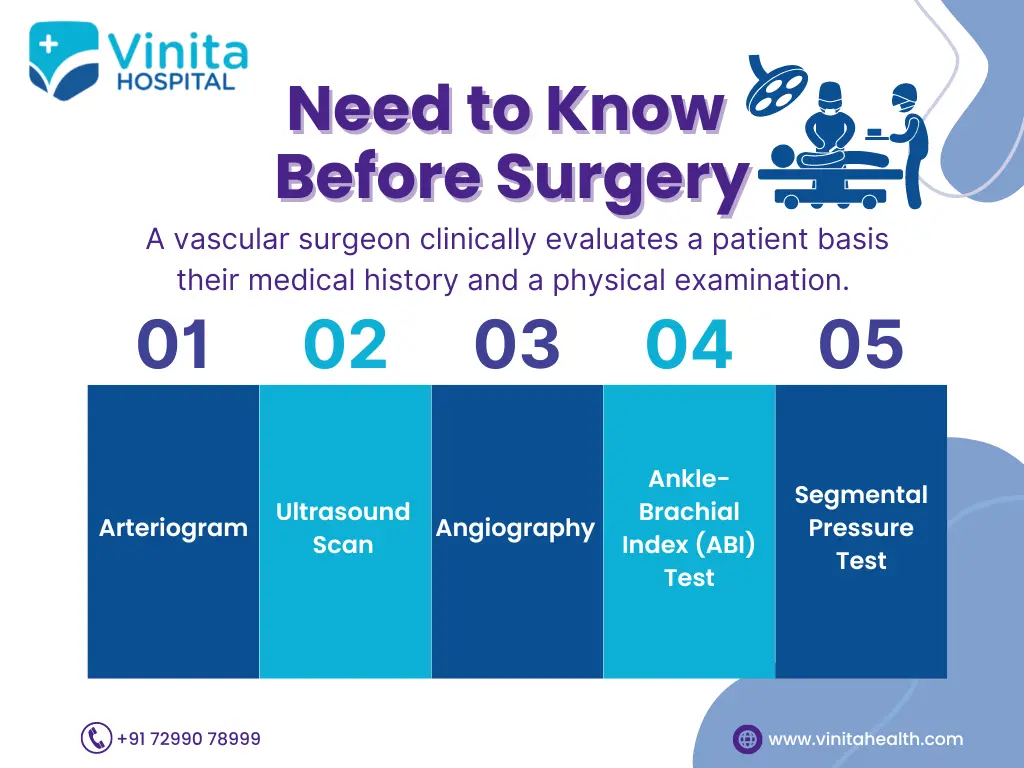
What are Vascular Diseases?
Vascular diseases are a group of conditions that affect the blood vessels, which are the tubes that carry blood throughout the body. These diseases can involve arteries, veins, or both, and they can range from mild to severe.
Some common examples of vascular diseases treated at the vascular surgery hospital in Chennai include:
- Atherosclerosis: The plaque builds up in the arteries, narrowing them and making it harder for blood to flow through.
- Peripheral Artery Disease (PAD): The arteries in the legs or arms become narrowed or blocked, leading to pain, numbness, or weakness.
- Deep Vein Thrombosis (DVT): A blood clot forms in a vein deep inside the body, typically in the legs.
- Varicose Veins: The veins in the legs become enlarged and twisted, often causing pain, swelling, or aching.
- Aneurysm: A weak spot in an artery wall causes it to bulge or balloon out, which can be life-threatening if it ruptures.
If you suffer from the above vascular ailments or veins-related diseases, you can also consult with the vascular surgeon in Chennai to get prompt treatment.
Check out: Kidney Stones Surgery in Chennai.
Types of Vascular Diseases
- Peripheral Artery Disease (PAD): A condition where narrowing or blockage of arteries outside of the heart restricts blood flow to the limbs, typically the legs.
- Aneurysm: Weakness in the wall of an artery that causes it to bulge or balloon out, potentially leading to rupture and life-threatening bleeding.
- Deep Vein Thrombosis (DVT): Formation of blood clots in deep veins, usually in the legs, which can cause pain, swelling, and potentially lead to pulmonary embolism if the clot travels to the lungs.
- Varicose Veins: Enlarged, twisted veins, often in the legs, caused by weakened vein walls and faulty valves, resulting in pooling of blood and discomfort.
- Carotid Artery Disease: Buildup of plaque in the carotid arteries, which supply blood to the brain, increasing the risk of stroke if the plaque ruptures or blocks blood flow.
- Raynaud’s Disease: A condition where small arteries in the fingers and toes narrow in response to cold or stress, causing numbness, pain, and color changes in the extremities.
- Vasculitis: Inflammation of blood vessels, which can affect arteries, veins, and capillaries throughout the body, leading to a range of symptoms depending on the affected vessels.
Causes of Vascular Disease
The causes of vascular diseases can vary depending on the specific condition. However, some common risk factors include high blood pressure, high cholesterol, smoking, diabetes, obesity, a family history of vascular disease, and a sedentary lifestyle.
Other factors, such as age, gender, and certain medical conditions, may also increase the risk of developing vascular disease. It is always advisable to consult a vascular surgeon at the vascular surgery hospital as he/she can identify the cause and aid you with the best treatment.
Best Vascular Surgery Hospital in Chennai
There are many vascular surgery hospitals in Chennai that are conducting advanced treatments for patients who are prone to vascular diseases. Some of them are discussed below to help you to find the right one.
Vinita Hospital
Vinita Hospital is the best at the top of the list when it comes to vascular surgery. This reputed vascular surgery hospital in Chennai has the best vascular surgeons who are great at adopting advanced surgical techniques to treat various kinds of vascular diseases.
The doctors who are working in this department have great proficiency in detecting exact vascular complications that prolong in the patients. Among them is Dr. K. Elancheralathan. This best vascular surgeon in Chennai has been associated with Vinita Hospital for 15 years.
If you or your loved one needs any surgery, this doctor immediately will find out the root cause of the issues, evaluate the complications, and suggest immediate vascular surgery.
Address: 70, Josier Street, Nungambakkam, Chennai – 600034.
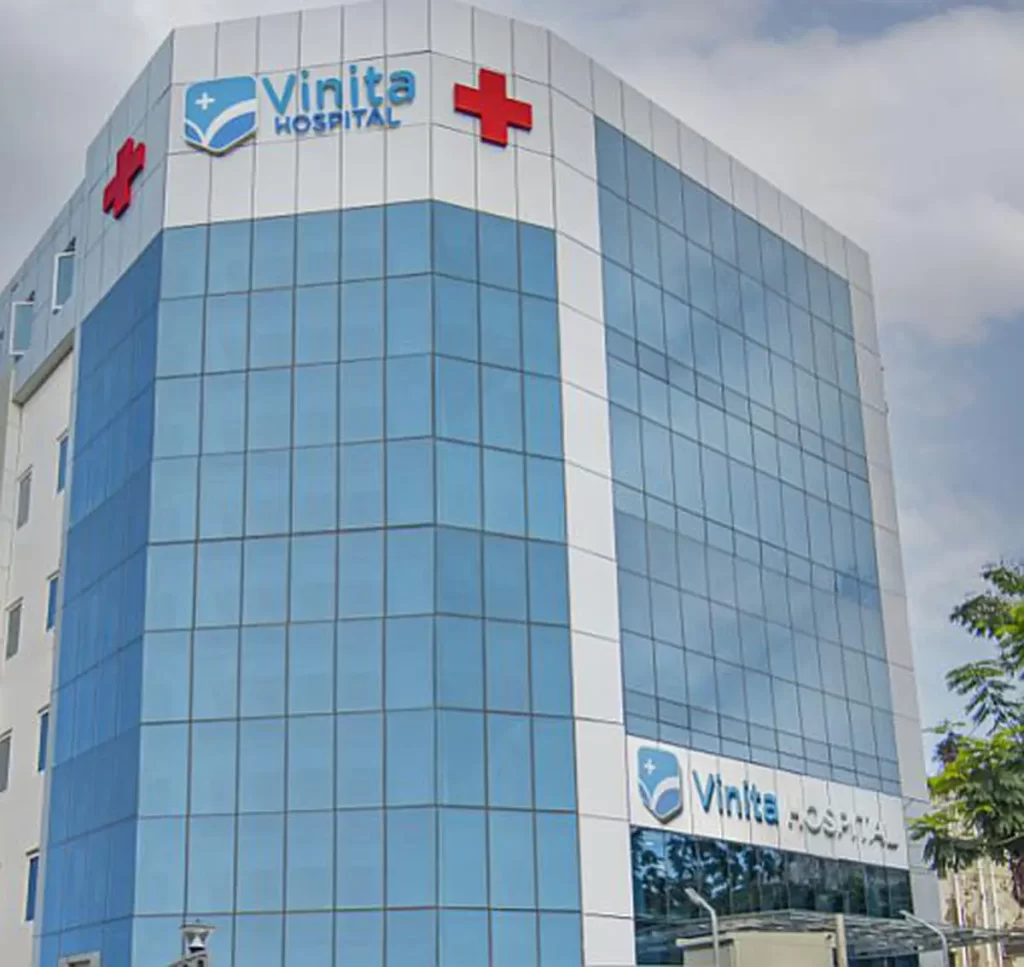
Risks of Vascular Surgery
Vascular surgery, while often beneficial, carries inherent risks such as infection, bleeding, and adverse reactions to anesthesia. Complications may include blood clots, damage to adjacent structures, or graft failure. Invasive procedures may lead to prolonged recovery and scarring. Additionally, there’s a potential for recurrent vascular issues or the need for further interventions. Pre-existing health conditions and patient-specific factors can increase surgical risks. Thorough preoperative assessment and communication with healthcare providers are essential to minimize complications and ensure optimal outcomes.
Benefits of Vascular Surgery
Vascular surgery offers crucial advantages by addressing vascular conditions, such as aneurysms and arterial blockages. This specialty enhances blood circulation, reducing the risk of stroke, heart attack, and peripheral artery disease. Patients experience improved quality of life through increased mobility and decreased pain. Swift intervention in emergencies, like ruptured aneurysms, saves lives. Vascular surgery also plays a vital role in preventing complications associated with diabetes, ensuring optimal limb function. Additionally, advancements in minimally invasive techniques contribute to quicker recovery times and reduced hospital stays. Overall, vascular surgery significantly enhances patient outcomes and promotes cardiovascular health.
Treatments and Services
- Endovascular Surgery: We specialize in minimally invasive techniques like angioplasty, stenting, and atherectomy, reducing pain and recovery time for patients.
- Open Surgery: For certain conditions, open surgery is necessary. Our expert surgeons use state-of-the-art technology to provide safe and effective treatment.
- Aneurysm Repair: We offer both endovascular (EVAR) and open aneurysm repair (OAR) for abdominal and thoracic aneurysms, tailored to each patient.
- Varicose Vein Treatment: Treatments include sclerotherapy, endovenous laser treatment (EVLT), and radiofrequency ablation (RFA).
Advantages
As the best vascular surgery hospital in Chennai, we offer:
- Expertise: Highly skilled surgeons with extensive experience.
- Advanced Technology: Cutting-edge diagnostic and treatment tools.
- Comprehensive Services: From peripheral artery disease to complex aneurysm repairs.
- Collaborative Approach: Multidisciplinary care with cardiology and radiology.
- Personalized Care: Tailored treatments for individual needs.
- Proven Success: A track record of successful outcomes and patient satisfaction.
Conclusion
The vascular surgery hospital in Chennai plays a critical role in the diagnosis and treatment of vascular diseases. These hospitals have highly trained and experienced vascular surgeons who utilize advanced technologies and techniques to provide the best possible care to patients.
Read also Best Cardiologist in Chennai.

